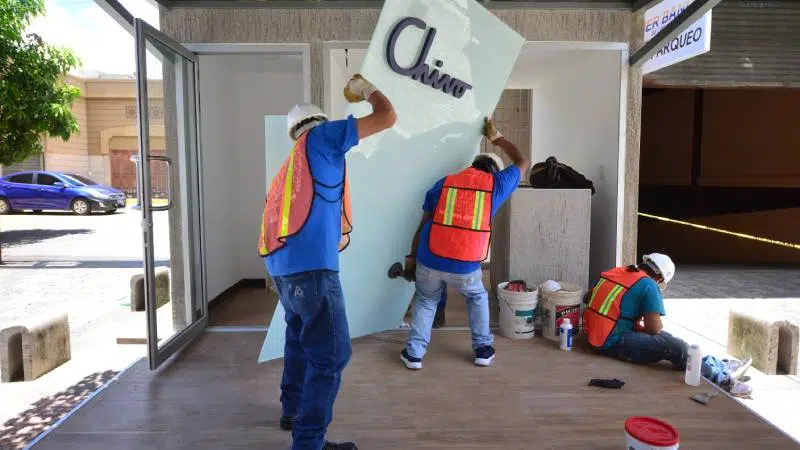Stacy Herbert, the director of the Oficina Nacional de Bitcoin (National Bitcoin Office) and appointee of President Nayib Bukele, announced on their official account on X this Thursday that “the Chivo Wallet will either be sold or discontinued, but the numerous private sector bitcoin wallets will continue servicing El Salvador.”
This announcement came just a day after the IMF disclosed that it had reached a technical agreement with Salvadoran authorities for a $1.4 billion financing program, which still requires the IMF Board’s approval in 2025 and adherence to various commitments.
One of the conditions is that the government must limit Bitcoin purchases; however, Herbert confirmed that daily Bitcoin purchases will continue and shared images of recent transactions, including purchases made this Thursday, a day after the IMF’s announcement.
“El Salvador will continue buying Bitcoin (possibly at an accelerated pace) for its Strategic Bitcoin Reserve,” she stated, adding that the cryptocurrency “will remain legal tender.”
She also mentioned that “Bitcoin capital markets will continue to grow; for example, the recent tokenized issuance of U.S. Treasury bonds on Liquid via @NexBridgeSV, and much more will be announced soon regarding Bitcoin capital markets.”
Additionally, Herbert indicated that the National Bitcoin Office “will continue developing Bitcoin policies and roadmaps, attracting investors, and launching educational programs, including new Bitcoin and money workbooks for young HODLers in second and third grade by January 2025.”
Herbert, who is also the wife of Max Keiser, a prominent Bitcoiner and advisor to Bukele on Bitcoin matters, reaffirmed in another message shortly after, “El Salvador is still stacking Bitcoin in its Strategic Bitcoin Reserve. And this is just the beginning. We have much more planned for 2025.”
The graph shared by Herbert suggests that El Salvador’s alleged Bitcoin reserve holds 5,968.7 units of the cryptocurrency, which at current values is worth over $600 million.
President Bukele also stated that, given Bitcoin’s record price surge in recent weeks, the country has made “profits” exceeding $300 million in its cryptocurrency reserves. However, there remains a lack of clarity regarding the use of these funds or their source.
The National Bitcoin Office further announced on Thursday night that it had “transferred” $1 million worth of Bitcoin into the “Strategic Reserve.” As of 9:30 PM Thursday, the cryptocurrency was valued at just over $97,000.
EDH: https://www.elsalvador.com/noticias/negocios/bitcoin-chivo-wallet-fmi-/1188847/2024/
Gobierno dice que venderá Chivo Wallet y seguirá comprando Bitcoin
La directora de la Oficina Nacional de Bitcoin, Stacy Herbert (nombrada por el presidente Nayib Bukele), publicó este jueves en la cuenta oficial en X que “la billetera Chivo se venderá o se descontinuará, pero las numerosas billeteras de bitcoin del sector privado seguirán prestando servicios a El Salvador”.
El anuncio de la funcionaria llega un día después de que el Fondo Monetario Internacional (FMI) anunciara que había llegado a un acuerdo técnico con autoridades de El Salvador para un programa de financiamiento por $1,400 millones, el cual debe pasar por aprobación del Directorio del organismo en 2025 y cumplir varios compromisos.
Una de las condiciones es que el gobierno debe limitar la compras de Bitcoin, pero la funcionaria aseguró que las compras diarias de Bitcoin van a seguir y difundió imágenes de las transacciones que han hecho en los últimos días y las que incluso realizaron este jueves, un día después del anuncio del organismo.
“El Salvador seguirá comprando bitcoin (posiblemente a un ritmo acelerado) para su Reserva Estratégica de Bitcoin”, afirmó y mencionó que la criptomoneda “sigue siendo de curso legal”.
Agregó que “los mercados de capital de Bitcoin seguirán construyéndose; por ejemplo, la reciente emisión tokenizada de bonos del Tesoro de EE. UU. en Liquid a través de @NexBridgeSV y mucho más se anunciará pronto con respecto a los mercados de capital en Bitcoin”.
También indicó que la Oficina de Bitcoin “continuará desarrollando políticas y hojas de ruta de Bitcoin, atrayendo inversores y creando programas educativos, incluidos los nuevos libros de trabajo de Bitcoin y dinero para pequeños HODLers de segundo y tercer grado para enero de 2025”.
Herbert, quien es esposa de Max Keiser, el bitcoiner que también asesora a Bukele en asuntos de Bitcoin, reafirmó en otro mensaje posterior que “El Salvador sigue apilando bitcoin en su Reserva Estratégica de Bitcoin. Y esto es sólo el principio. Tenemos mucho reservado para 2025”.
En la gráfica que compartió la funcionaria se observa que la supuesta reserva de Bitcoin de El Salvador es de 5,968.7 unidades de la criptomoneda, lo cual asciende a más de $600 millones al valor actual.
Bukele también ha externado que, ante el alza de precio récord que ha tenido el Bitcoin en las últimas semanas, el país ha obtenido “ganancias” de más $300 millones en la reserva del criptoactivo, pero de cuyos fondos no se tiene claridad en qué se usan o de qué partida salen.
La Oficina Nacional de Bitcoin, incluso, publicó en la noche de este jueves que había “transferido” $1 millón en la criptomoneda a la “Reserva Estratégica”. La criptomoneda se cotizaba en poco más de $97,000 hasta las 9:30 de la noche del jueves.
EDH: https://www.elsalvador.com/noticias/negocios/bitcoin-chivo-wallet-fmi-/1188847/2024/

